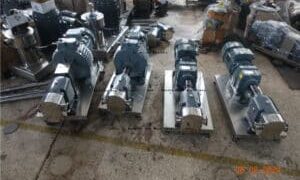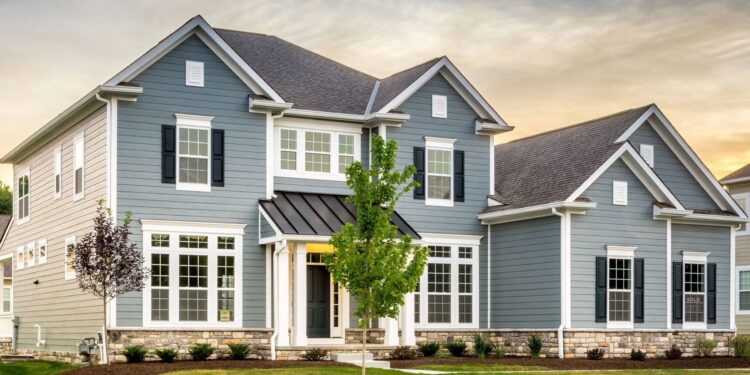Abuja, Nigeria’s serene and modern capital city, has fast become one of the most desirable locations for real estate investment in West Africa. Known for its well-planned layout, high security, and access to essential infrastructure, the demand for houses for sale in Abuja continues to soar among families, professionals, and investors alike.
Whether you’re looking to buy your dream home, invest in rental property, or secure a long-term asset, this article provides everything you need to know about finding and buying a house in Abuja.
Why Buy a House in Abuja?
Abuja offers a unique blend of tranquility, luxury, and strategic importance. Unlike the hustle and bustle of Lagos, Abuja’s calm environment and organized neighborhoods attract those seeking quality of life and long-term property value.
Here’s why many people are purchasing houses in Abuja:
- Peace and Security: Abuja is considered one of the safest cities in Nigeria, housing government institutions, foreign embassies, and international organizations.
- High Return on Investment (ROI): Properties in Abuja appreciate quickly, especially in upscale and developing areas.
- Urban Development: Roads, power, water, and communication infrastructure are relatively more reliable than in many other Nigerian cities.
- Diverse Housing Options: From budget-friendly homes to luxurious mansions, Abuja caters to all buyer profiles.
Types of Houses for Sale in Abuja
Abuja’s real estate market offers a wide variety of housing options depending on your lifestyle and budget:
1. Detached Houses (Duplexes)
Stand-alone homes often featuring 3 to 6 bedrooms, spacious compounds, and sometimes private gardens or pools. Ideal for large families or high-income buyers.
2. Semi-Detached Duplexes
Two houses sharing a wall but offering more privacy than terrace homes. Common in middle-class estates.
3. Bungalows
Single-story homes suitable for elderly buyers or those who prefer fewer stairs.
4. Terraced Houses (Townhouses)
Multiple units built side-by-side, offering affordability and community living. Great for young families.
5. Luxury Villas & Mansions
High-end houses typically found in elite areas such as Maitama and Asokoro. These feature premium designs, smart home features, and upscale amenities.
Top Areas to Buy Houses in Abuja
Abuja is structured into districts, with each area offering unique real estate advantages. Here are some of the most sought-after neighborhoods for house purchases:
1. Maitama
- Features: Government officials, diplomats, and business executives reside here.
- House Price Range: ₦300M to ₦1B+
- Why Buy Here? Prestige, top-tier security, and luxury.
2. Asokoro
- Features: Home to embassies and top politicians.
- House Price Range: ₦250M to ₦900M
- Why Buy Here? Elite status and proximity to the Presidential Villa.
3. Gwarinpa
- Features: One of the largest housing estates in West Africa.
- House Price Range: ₦50M to ₦150M
- Why Buy Here? Affordable yet spacious houses in a well-structured environment.
4. Wuse
- Features: A commercial and residential mix.
- House Price Range: ₦80M to ₦250M
- Why Buy Here? Central location and access to business hubs.
5. Lokogoma
- Features: Rapidly developing with gated estates and modern layouts.
- House Price Range: ₦30M to ₦80M
- Why Buy Here? Affordable housing with good infrastructure.
6. Lugbe
- Features: Popular with first-time buyers and civil servants.
- House Price Range: ₦20M to ₦60M
- Why Buy Here? Budget-friendly with increasing growth prospects.
What to Consider When Buying a House in Abuja
Investing in real estate is a significant financial decision. Here are the key factors to evaluate before buying a house:
1. Budget and Financing
Know how much you’re willing to spend and explore financing options such as:
- Personal savings
- Mortgage loans (e.g., Federal Mortgage Bank of Nigeria, commercial banks)
- Real estate installment plans
2. Title Verification
Ensure the house has proper legal documentation, such as:
- Certificate of Occupancy (C of O)
- Deed of Assignment
- Governor’s Consent
- Survey plan
Always verify documents at the Abuja Geographic Information Systems (AGIS) office.
3. Location and Accessibility
Buy a home that offers easy access to work, schools, healthcare, and public transport. Check the quality of roads, water drainage, and proximity to essential services.
4. Infrastructure and Amenities
Look for houses in estates or areas with:
- Steady electricity supply (e.g., backup generators or inverters)
- Water systems
- Good security (CCTV, gated entry, guards)
- Recreational facilities (for luxury estates)
5. Developer Reputation
If buying a newly built home, research the developer’s past projects. Check for build quality, delivery timelines, and customer reviews.
How to Find Houses for Sale in Abuja
Finding your ideal home is easier today thanks to digital platforms and professional agents. Here are the best ways to search:
A. Online Property Listings
Websites like EverythingProperty.ng, PropertyPro.ng, and NigeriaPropertyCentre.com allow you to filter homes by location, price, and house type.
B. Real Estate Agents
Work with a licensed, experienced real estate agent who knows the Abuja market. They can help with inspections, negotiations, and paperwork.
C. Estate Developers
Many estates offer houses for sale directly to the public. Examples include Brains & Hammers, Urban Shelter, and Mixta Africa.
D. Word of Mouth
Ask colleagues, friends, or local residents about available properties. Sometimes the best deals are off-market.
Legal Process of Buying a House in Abuja
Here’s a simplified legal process for purchasing a home:
- Offer and Negotiation: Agree on price and terms with the seller or developer.
- Title Search: Conduct due diligence to confirm the title is clean and authentic.
- Payment Agreement: Sign a contract of sale and issue payment according to agreed terms.
- Document Transfer: Lawyer drafts the Deed of Assignment.
- Registration: Register the new ownership with AGIS.
Common Mistakes to Avoid
- Buying without verifying the title.
- Not using a qualified real estate lawyer.
- Ignoring hidden charges like agency fees, legal fees, and service charges.
- Overlooking neighborhood assessments during rainy seasons.
- Rushing into a deal without physical inspection.
Final Thoughts
The market for houses for sale in Abuja offers a mix of luxury, affordability, and long-term value. With high security, strong infrastructure, and growing demand, Abuja remains a top choice for buyers seeking both personal residence and profitable investment.
Whether you’re looking for a budget bungalow in Lugbe or a luxury duplex in Maitama, it’s crucial to do your research, engage professionals, and follow due legal process. With these steps, owning a house in Abuja can become a reality and a smart move for your future.





























